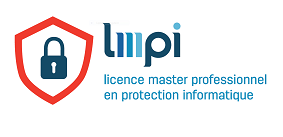Introduction
Introduction
The LMPI project seeks to establish e-learning Bachelor’s and Master’s degrees for the protection of computer systems and networks in three Partner Countries, Vietnam, Moldova and Kazakhstan. In order to bridge skills gaps at both technician and engineering levels, the partners will develop a lifelong learning program in this area for employers. The curriculum to be developed will meet the needs of private companies which are seeking specialists to protect themselves against cybercrime.
Description
Cybercrime affects almost all countries. In order to face it, well-trained specialists in advanced computer technologies are needed. The three participating Partner Countries suffer from a shortage of managers, technicians and engineers to address this major problem. The need for the project which develops university education in this sector is, thus, quite evident. Highly qualified graduates with vocational or professional background are needed, as are academic and professional staff to train them. Continuing education to keep them abreast of the latest developments in this advanced area is an imperative. The project focuses on curriculum development in the area of computer sciences or, more specifically, security services.
A survey of 500 companies will analyze the needs in basic and specific skills in businesses and therefore the training needs and specialization required for the Bachelor’s and Master’s degrees. It will then list them, break them down into semester’s curriculum and different teaching units. The teaching units would be practical work, work laboratory, personal work and allocation of ECTS credits. It will then be possible to design the courses contents and educational resources in each of the three countries and to set up a center of excellence in each of the three leading universities (resource center and technology platform equipped by the project).
The project envisages training courses that can be accessed online as well. Each partner university will build or adapt a didactic cyberspace in which all activities will take place. In order to respond flexibly to the businesses’ needs the project will also built a modular system covering all fields of network administration and security of computer systems (10 modules). In particular, they cover the following fields: cryptographic mechanisms and applications; administration and network security system; software engineering ; UML and security; certified and secure development; security application; wireless mobile devices; security organization and methods. In each region 50 professionals will be trained in this online course offer.
Objectives
The goal of the LMPI project is help to secure companies systems and networks in Kazakhstan, Moldova and Vietnam, through professional training, human resources and developing the skills of the citizens of the countries concerned.
The project objectives are:
– bridge skills gaps in the design and maintenance of corporate computer systems security, improving the employability of students and specializing employees’ skills.
– professionalize the universities’ curricula in the development, administration, management and protection of computer systems and networks in accordance with the Bologna Process and with the European Qualifications Framework (EQF) and, to some extent, delocalize companies.
– create two new courses available in ODL for the development and protection of computer networks and information technology in enterprises, adapted to the needs of these last ones;
– create a Bachelor’s Degree in administration and management of computer systems and networks
– create a Master’s degree program in professional administration and management, with a specialization in security of computer systems and corporate networks;
– train, in each country, at least 270 students in the first year of the 2 new degree programs (180 in the Bachelor’s program; 90 in the first year of Master).
– Specialize 24 teachers in EU (10KZ, 8MD, 6 VN); digitize courses and learning resources.
-Create a lifelong training modular system in the same field of education and train 50 professionals per country.
-Create a center of excellence in each country, a resource center, supporting the new offer.
-write programs and course content, including digital resources that make them accessible in ODL.











